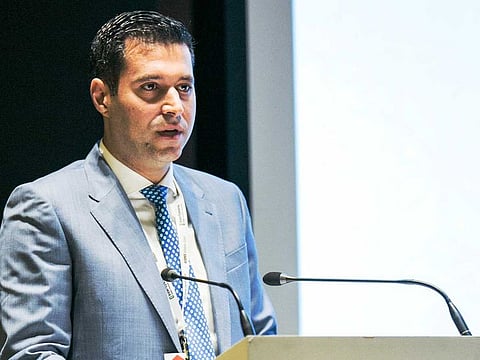A new health insurance system has the power to increase healthcare business efficiency in Dubai
DRGs can be easily implemented into TrakCare to ensure smooth transition for customers

On September 1st, Dubai has adopted a global health insurance system that will increase the efficiency of healthcare and bring down healthcare-related costs. The “DRG” model (Diagnosis Related Group) is a patient classification system that standardizes prospective payments to hospitals.
Previously, Dubai healthcare providers followed a fee-for-service payment mode, where each service or procedure was billed and reimbursed individually. Following the DRG model, patients are categorized by their similar clinical characteristics and costs, such as gender, age and diagnosis. This means the hospital can only charge a “bundled” cost based on the admitted patient’s diagnosis rather than the cost it actually spends caring for the patient.
Although originally intended to help curve skyrocketing healthcare costs and streamline the insurance approvals and reimbursement process, its impact is far reaching from both a care and business standpoint. With costs and coding of treatments now standardized, DRGs have the power to speed up the insurance reimbursement process and reduce rejection rates, which can reach as high as 15 per cent in the UAE. Further, hospitals and clinics are encouraged to use the most effective treatment options when it comes to caring for patients. If the provider spends money on an unnecessary treatment, the hospital will lose money on that patient’s care.
What does this mean for patients in Dubai? They can visit doctors knowing they are getting the most efficient and transparent care possible – without having to worry about extra testing, prescriptions or longer hospital stays. The patient pays the same whether he or she is treated in 10 or 20 days.
DRGs implementation is an important milestone for the business of healthcare across Dubai as it presents an opportunity for providers to adjust their care and deliver more efficiency. The successful hospitals and clinics will be the ones who embrace the power of data and technology. This includes leveraging machine learning, predictive analytics, benchmarking, cross-source data comparison and best practice rules. These powerful technologies provide a level of accuracy that manual processes simply cannot match.
Additionally, technology will allow providers to easily analyze DRG-related data. This leads to quicker, more informed decisions, better prevention strategies and ultimately more revenue in the future. This cannot be done without a unified electronic medical record (EMR) system, such as InterSystems TrakCare, to comprehensively manage both patient and clinical data.
This is further demonstrated by other countries who have already implemented this payment model. A journal article published in Health Policy (Volume 117, Issue 2, August 2014, Pages 146-150), sheds light on the evidence of DGRs impact on France, where it was first introduced in 2005. After analyzing the France’s patient classifications, cost data, price settings, payments, expenditures, monitoring and outcomes, the journal concludes that a DGR-based payment system provides enhanced efficiency and transparency as well as improved accountability and productivity. Further, it calls upon the need for a strong information management system to control revenue and quality of service.
We have come to learn that with an intelligent EMR that is able to collect and analyze data, hospitals will have heathier patients and an even healthier revenue management stream.
At InterSystems, we’ve worked quickly to implement DRGs into TrakCare to ensure the smoothest transition for our customers. With TrakCare’s embedded dashboards and single data repository, it is much easier for clinicians and administrators to track down and understand the cost and quality of care.
Data quality control, audit, reporting features, and international best practices built into the system support accreditation requirements and the delivery of world-class care.
With the move to increased efficiency, transparency and decreased healthcare costs, DRGs implementation is a strategic step for the future of healthcare in Dubai.
Sign up for the Daily Briefing
Get the latest news and updates straight to your inbox



